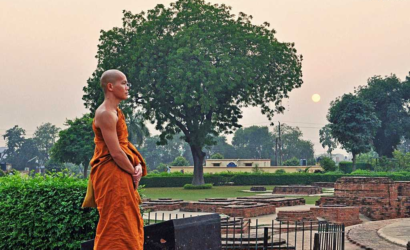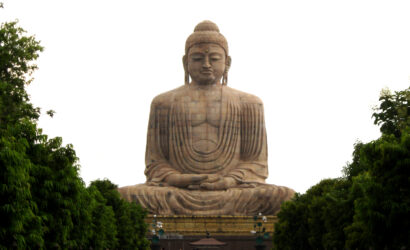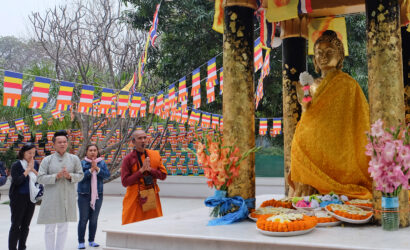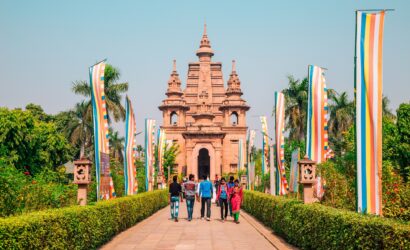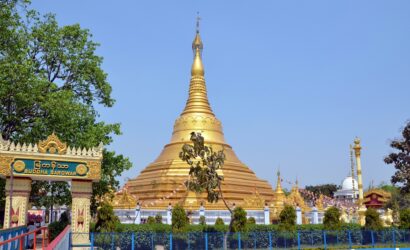Sarnath
Sarnath, located near the city of Varanasi in the state of Uttar Pradesh, India, is a sacred Buddhist site of immense historical and spiritual significance. It is renowned as the place where Lord Buddha delivered his first sermon, known as the Dhammacakkappavattana Sutta, after attaining enlightenment in Bodh Gaya.
Sarnath is considered one of the four main Buddhist pilgrimage sites, along with Bodh Gaya, Kushinagar, and Lumbini (in present-day Nepal). It holds a special place in Buddhist tradition as the site where the Buddha first taught the Dharma, or the teachings of Buddhism, to his five companions, setting in motion the Wheel of Dharma.
The main attraction in Sarnath is the Dhamek Stupa, a massive cylindrical structure built in the 5th century CE to mark the spot where the Buddha gave his first sermon. The stupa stands as a symbol of Buddhist faith and is adorned with intricate carvings and inscriptions. Nearby, the Chaukhandi Stupa commemorates the site where the Buddha met his first disciples.
Sarnath is also home to several ancient monasteries, temples, and archaeological ruins dating back to the Gupta and Maurya periods. The Mulagandha Kuti Vihara, built in the 20th century, is a modern Buddhist temple and monastery that houses a golden statue of the Buddha and frescoes depicting scenes from his life.
The Sarnath Archaeological Museum, located near the Dhamek Stupa, displays a rich collection of artifacts, sculptures, and relics excavated from the site, including the famous Lion Capital of Ashoka, which is now the national emblem of India.
In addition to its historical and religious significance, Sarnath offers visitors a peaceful and serene atmosphere conducive to meditation and spiritual reflection. The well-maintained gardens and tranquil surroundings make it an ideal place for contemplation and introspection.
Overall, Sarnath is a place of profound spiritual significance for Buddhists and a fascinating destination for travelers interested in exploring the roots of Buddhism and experiencing its timeless teachings in a serene and sacred setting.
City Tour
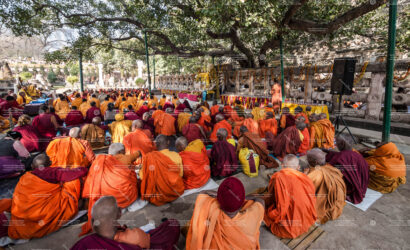
Buddhist Spiritual Tour: 6 Days of Enlightenment
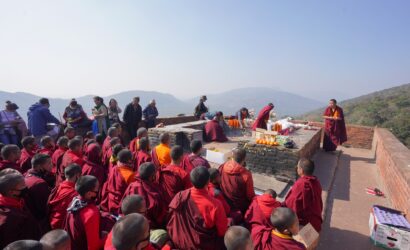
Buddhist Trail Tour: 7 Days of Sacred Discovery
Cultural Tours
Tourism is travel for pleasure or business; also the theory and practice of touring, the business of attracting, accommodating, and entertaining tourists, and the business of operating tours. Tourism may be international, or within the traveller’s country. The World Tourism Organization defines tourism more generally, in terms which go “beyond the common perception of tourism as being limited to holiday activity only”, as people “traveling to and staying in places outside their usual environment for not more than one consecutive year for leisure, business and other purposes”.
Tourism can be domestic or international, and international tourism has both incoming and outgoing implications on a country’s balance of payments. Today, tourism is a major source of income for many countries, and affects the economy of both the source and host countries, in some cases being of vital importance.

Buddhist Spiritual Tour: 6 Days of Enlightenment

Buddhist Trail Tour: 7 Days of Sacred Discovery
Multi Day Tour

Buddhist Spiritual Tour: 6 Days of Enlightenment

